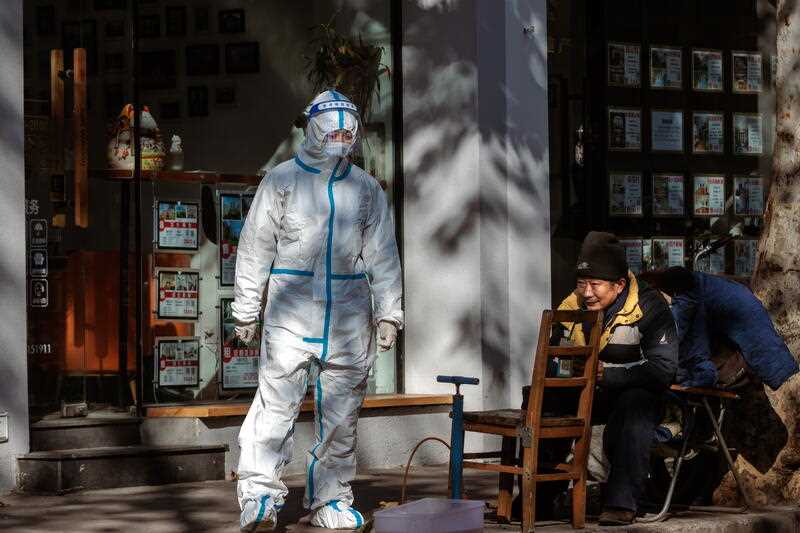The alarming COVID-19 wave ravaging China’s population may be worrying the Australian Treasurer but economists expect any economic consequences to be short lived.
The most populous country in the world has been battling a devastating wave of the virus after abruptly overturning its staunch zero-COVID policy late last year.
Treasurer Jim Chalmers has voiced his concerns about China’s COVID management as one of several threats to Australia’s economic performance in 2023, noting that the outbreak will put pressure on the Chinese workforce and spark a fresh round of supply chain chaos.
“That will flow through to the global economy and we won’t be immune from that,” Dr Chalmers said earlier in the week.
Market Economics economist Stephen Koukoulas agreed that in the short term, China would struggle to supply the low cost goods and componentry that much of the world depends on.
For Australia and other economies, this will trigger a relapse into supply chain issues that restrict the supply of materials for construction and manufacturing, driving up costs and causing delays.
But with China’s tough COVID restrictions presumedly relaxed for good, Mr Koukoulas said it was feasible that within a few months, the worst of the wave could pass, allowing workers to get back to full production.
He also pointed to the seemingly unfazed commodity markets, which tend to indicate the health of the global economy, as a sign that markets were focused on China’s eventual re-emergence from its COVID crisis.
Judo Bank economic advisor Warren Hogan agreed that the uptick in the iron ore price suggested Chinese industries were already rebooting and on the way to recovery.
He also said China’s exit strategy from its harsh COVID zero regime, which was crippling its economy through frequent lockdowns and relentless testing, was ultimately a positive sign for Australia.
Importantly, Mr Hogan said the wave was unlikely to materially change China’s demand for Australia’s resource and iron ore.
“The really important story is the people flows – the Chinese students and tourists – that will have a much bigger impact on the Australian economy in the short term than the broader commodity story,” he told AAP.
Signs of an improving trade relationship with China could also open back up key export markets for Australian coal, wine and other affected industries, but Mr Hogan said a possible retaliation to Australia’s travel restrictions on Chinese arrivals could set relationship repair efforts back.
While a likely snap economic recovery in China was generally good news for Australia, Mr Hogan said a rapid influx of Chinese money into the Australian economy could put pressure on domestic inflation.
This could add complexity to the Reserve Bank’s task of bringing inflation back within its two-three per cent target range.
For China’s itself, JP Morgan analysts expect to see a deeper near term contraction in economic growth but an earlier and sharper rebound.
The firm’s economic analysts expect China’s GDP to contract 1.1 per cent in the final quarter of 2022, up from previous predictions of 0.8 per cent.
Imagining infections peak around the Lunar New Year holiday in late January, JP Morgan’s analysts expect growth to surge by 10.4 per cent in the second quarter of 2023, much higher than the 6.1 per cent increase previously forecasted.



